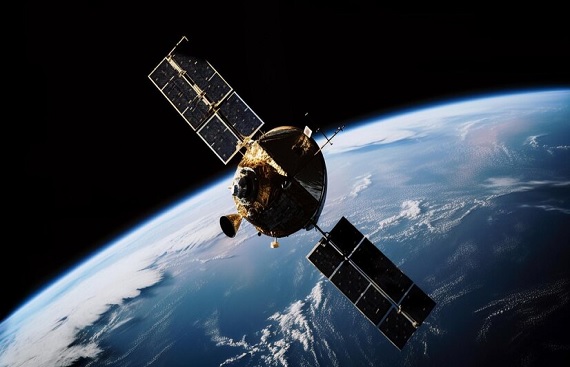India allows 100 Percent Foreign Investment in the Space Sector
By
siliconindia | Thursday, 22 February 2024, 03:12 Hrs

The Union Cabinet has approved an amendment in the FDI policy for the space sector, allowing Foreign Direct Investment ranging from 49 to 100 percent. As per the revised policy, 100 percent FDI is permitted in the space sector. Under the amended policy, satellite manufacturing & operation, satellite data products, and ground segment & user segment can receive FDI up to 74 percent through the automatic route, with government route applicable beyond this limit. For sub-sectors such as launch vehicles and associated systems or sub-systems, and the establishment of spaceports for launching and receiving spacecraft, FDI up to 49 percent is allowed through the automatic route, with government route applicable beyond this threshold. Additionally, manufacturing components and systems/sub-systems for satellites, ground segments, and user segments can now receive 100 percent FDI under the automatic route.
Until now, establishing and operating satellites through Foreign Direct Investment (FDI) was only permitted via the government's approval route. However, in alignment with the vision and strategy outlined in the Indian Space Policy 2023, the Union Cabinet has relaxed the FDI policy in the space sector by introducing more lenient FDI thresholds for various sub-sectors/activities. The amended policy aims to encourage potential investors to invest in Indian space companies. This move is intended to support the vision of an Atmanirbhar Bharat (self-reliant India) as articulated by Prime Minister Shri Narendra Modi.
“The FDI policy reform will enhance Ease of Doing Business in the country, leading to greater FDI inflows and thereby contributing to the growth of investment, income and employment,” it said. The Indian Space Policy 2023 was cited as an overarching, composite, and dynamic framework to implement the vision for unlocking India’s potential in the space sector through enhanced private participation. The policy aims to augment space capabilities, develop a flourishing commercial presence in space, use space as a driver of technology development and derived benefits in allied areas, pursue international relations, and create an ecosystem for effectively implementing space applications among all stakeholders.
“The proposed reforms seek to liberalize the FDI policy provisions in the space sector by prescribing liberalized entry route and providing clarity for FDI in Satellites, Launch Vehicles and associated systems or sub-systems, Creation of Spaceports for launching and receiving Spacecraft and manufacturing of space-related components and systems", the statement said.
The Department of Space engaged in consultations with internal stakeholders including IN-SPACe, ISRO, NSIL, and various industrial stakeholders. New Generation Entrepreneurs (NGEs) have developed capabilities and expertise in satellites and launch vehicles. With heightened investment, they have the potential to enhance the sophistication of their products, expand their operations globally, and capture a larger share of the global space economy.
“This increased private sector participation would help to generate employment, enable modern technology absorption and make the sector self-reliant. It is expected to integrate Indian companies into global value chains. With this, companies will be able to set up their manufacturing facilities within the country duly encouraging ‘Make In India (MII) ‘and ‘Atmanirbhar Bharat’ initiatives of the Government", the statement said.
